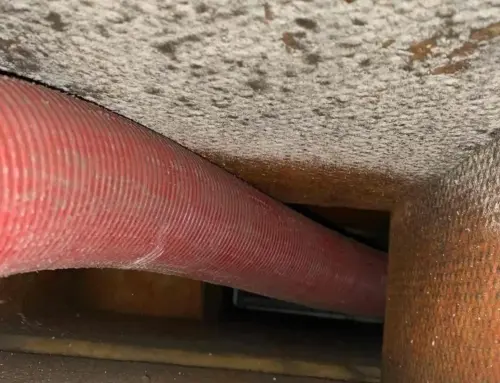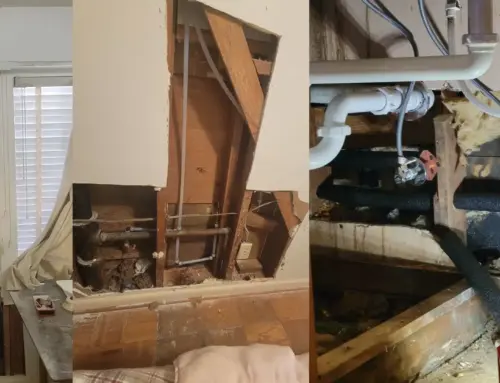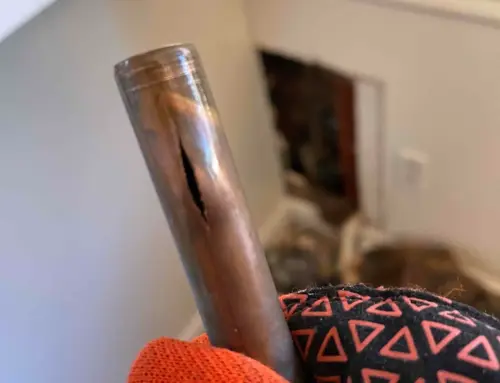Air conditioning bills are a significant expense for many homeowners. Living in Texas can increase these energy bills because of the consistently elevated temperatures throughout the state. In 2022, there were 47 days where the mercury reached over 100 degrees!
Extreme temperatures force you to use your air conditioner more often to ensure a comfortable home. Additional work stresses your system, so if you experience an AC noise you’ve never heard before, a trained AC technician can help you determine the cause and find a solution.
Why Is My AC Making Noise?
Modern cooling systems are designed to operate quietly. When you turn on your air conditioner, you shouldn’t hear loud, obnoxious sounds. Buzzing, rattling, squeaking, or screeching noises make it hard to enjoy the comfort of your home.
If your unit makes standard AC noises, there is nothing to worry about. But other noise from air conditioners indicates there is a more extensive problem.
If you have been scouring the internet to answer the question, “Why is my AC so loud?” you can stop your search. There are several reasons why you hear your AC unit making loud noises.
6 Types of AC Noises and What to Do About Them
AC noise can quickly turn your relaxing day into a stressful situation. Minor humming coming from the motor is normal for many systems. Air conditioners are complex machines that typically have some standard noises. However, any loud air conditioner noise could signal it needs attention from a qualified professional.
The most common AC noise you may hear include:
- Banging
- Rattling
- Squealing
- Clanking
- Clicking
- Buzzing
If you have an air conditioner making noises that sound like these, contact an experienced HVAC technician promptly. It’s essential to understand the cause of the noise before a proper solution can be implemented. Trusting a professional with this diagnosis will expedite the process and ensure your system gets the attention it deserves.
Banging
Loud banging often comes from your AC compressor making noise. This component is responsible for circulating the coolant to cool the air. Standard wear and tear causes the connecting rod or crankshaft to loosen, rattle, or bang against the metal casing.
Your HVAC technician will most likely recommend replacing the compressor because they cannot access the inside of it without damaging the outer shell.
Other potential culprits causing the banging sound include an unbalanced blower or outdoor fan. The fan blades may be colliding with other components.
Either situation requires immediate attention to prevent more extensive damage. Turn the system off and request a technician from a local HVAC company.
Rattling
One of the most common reasons you may hear a rattling air conditioner sound is because there are loose screws and panels. Sometimes, these screws loosen over time or weren’t adequately tightened during the initial installation.
A rattling sound may also come from loose panels or doors. You can verify whether these pieces are firmly attached. If not, you can reattach them by tightening any loose screws.
Your noisy air conditioner could also stem from a misaligned fan blade. The blade could be out of alignment because of poor installation or external debris. A professional can determine whether a replacement fan is necessary if the AC noise comes from an installation error.
Every air conditioner has a motor that powers the internal components. Any damage to it could cause it to work incorrectly. The other parts that rely on it become loose, leading to your AC making noise.
Your rattling noise could also come from outside debris that blows into the unit. Leaves, sticks, and other particles the wind picks up can clog your system. If you are comfortable cleaning your AC, remove the condenser cover and debris. However, contacting a qualified professional is best if you’ve never done this before.
Squealing
Some air conditioners have a belt connecting the fan and the motor. As humidity levels increase, the belt expands and contracts. Eventually, it can stretch and become fragile. If this is the problem, you may notice the squealing coming and going as the temperature and humidity levels change throughout the day.
Repairing or replacing these belts will prevent this nails-on-a-chalkboard sound and keep your unit from shutting down. Routine maintenance is an essential part of keeping these components in good shape.
Many newer AC systems don’t have a belt to worry about. However, it has a condenser fan that contains bearings that could wear out. If you notice your AC unit making loud noises while running, this is potentially the problem.
When ignored, the bearings continue to wear and may damage the motor. A motor issue costs you more money in the long run and leaves you without cold air.
Another cause of a squealing noise may be an under-lubricated motor. Like your vehicle, the AC motor needs lubrication. The correct type of oil must be used to ensure longevity.
These issues require attention from an HVAC repair company. Turn off your unit until help arrives. Leaving it running could threaten your family’s health and cause irreparable damage to the system.
Clanking
Anytime you hear a clanking sound, it’s likely coming from the outdoor unit. In most cases, something is disrupting the unit’s fans. Your system could also have an unbalanced indoor blower.
Worn-out parts are routinely the reason you hear a clanking sound. Some of the components that may need addressing include:
- Motor mounts
- Compressors
- Fan motors
- Fan blades
- Blower motor
- Belts
Neglecting these worn-down parts can cause additional damage and more expensive repairs.
Depending on the location of your system, an object may have fallen into the unit. The fan will hit this object as it passes, making a clanking sound. Turn the system off and call a professional to prevent further damage from occurring to the fan or other components of the AC system.
Clicking
There are several reasons why your AC may produce a clicking noise. The most common cause is insignificant. A single click is often the thermostat communicating with the HVAC system. However, multiple or increasingly loud clicks could indicate other potential problems.
A repetitive clicking sound in your HVAC system means the relay process in the thermostat has a problem. This component regulates the temperature, and an HVAC specialist must address the issue.
A fan obstruction can cause a clicking noise that starts slowly and becomes faster and louder. Removing any debris from your outdoor unit may resolve this problem. You can do this, but calling a professional is always the safest option.
Other issues contributing to your clicking noise include compressor glitches and electrical problems. If you hear a clicking noise as you attempt to turn on your AC, or the noise comes from outside the house, contact a licensed professional immediately to perform an inspection.
Buzzing
A buzzing sound has several potential culprits. These problems range from obstructed copper lines to a contractor malfunction. If the copper lines connected to your system are blocked or touching each other, it may create a buzzing sound. Ensuring your cables are properly insulated will reduce metal-to-metal contact.
An AC contractor controls the electricity flowing to your compressor. As this component wears out, you may hear a noise. When this issue is ignored, it may prevent the unit from starting up, leading to a buzzing sound.
Another reason you may hear buzzing is due to a faulty capacitor. The capacitor is responsible for providing your outside unit with power. A defective capacitor doesn’t possess adequate ability to turn the fan on, causing a buzzing noise. You must call a certified technician to properly inspect the system and advise whether a repair or replacement is best.
Persistent buzzing from the external unit may indicate a refrigerant leak or that it is freezing due to excessive use. Shut the system down for a few hours and start it up again. However, if this happens repeatedly, you must call for a repair.
The final cause of a buzzing AC unit is an issue with the isolation feet. Compressors have tiny rubber feet that wear out after years of use. When they break or crack, the compressor becomes unbalanced and starts making a buzzing noise.
Call the Professionals at Swan
No matter the cause, these noises need prompt attention. You can follow the troubleshooting guide provided by the manufacturer, but those tips only take you so far. While some of these noises can be resolved by cleaning the outdoor unit, most of them require the expertise of a licensed, professional HVAC technician.
If your air conditioner produces any of these sounds, it’s best to leave it to a pro, like those from Swan Electric, Plumbing, Heating, and Air, who can pinpoint the problem. We’ll provide you with solutions that keep your best interests in mind.
Never risk letting a minor repair escalate to a significant AC emergency. Call Swan Electric, Plumbing, Heating, and Air for a prompt response to your AC noise. We’ll get your system operating again — noise-free! Schedule your repair or get a consultation today!





 SCHEDULE SERVICE
SCHEDULE SERVICE CALL US 214-989-7207
CALL US 214-989-7207




